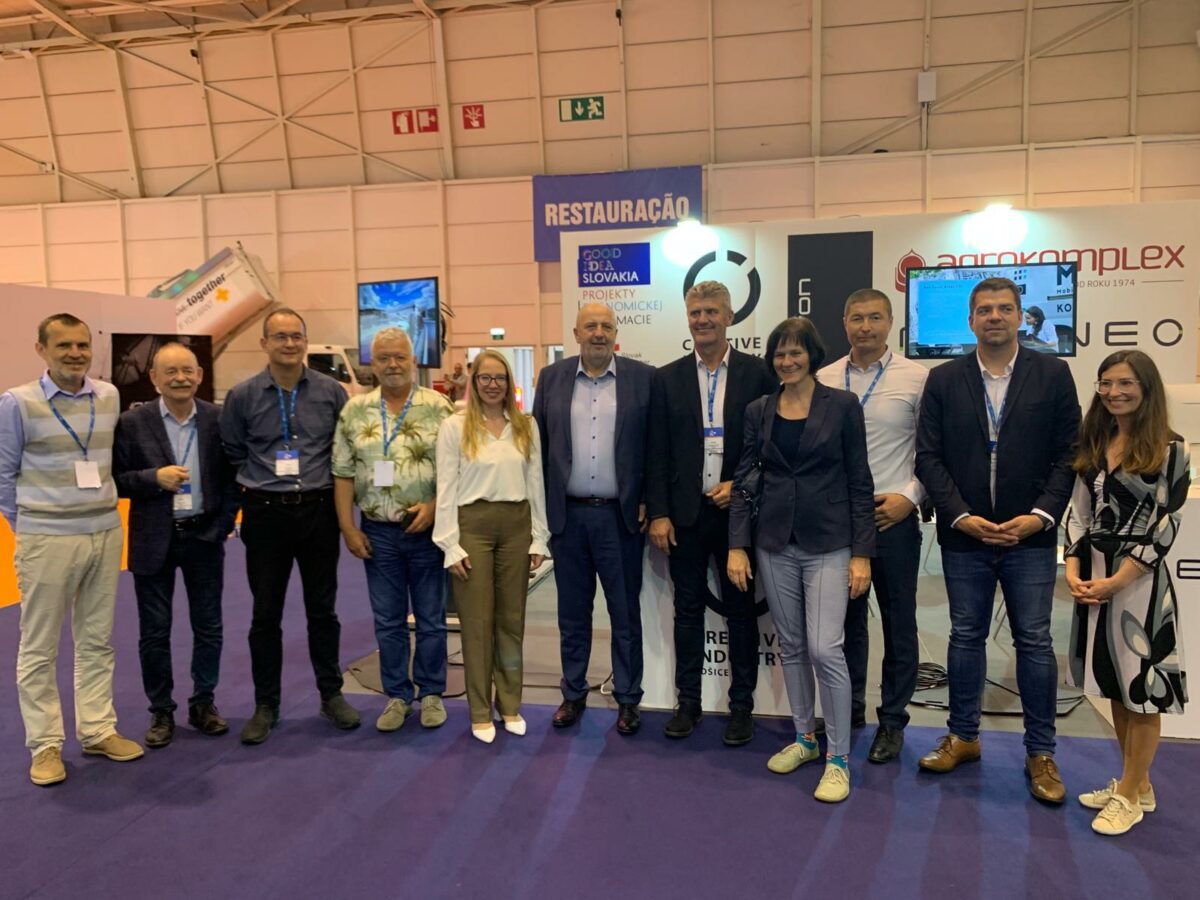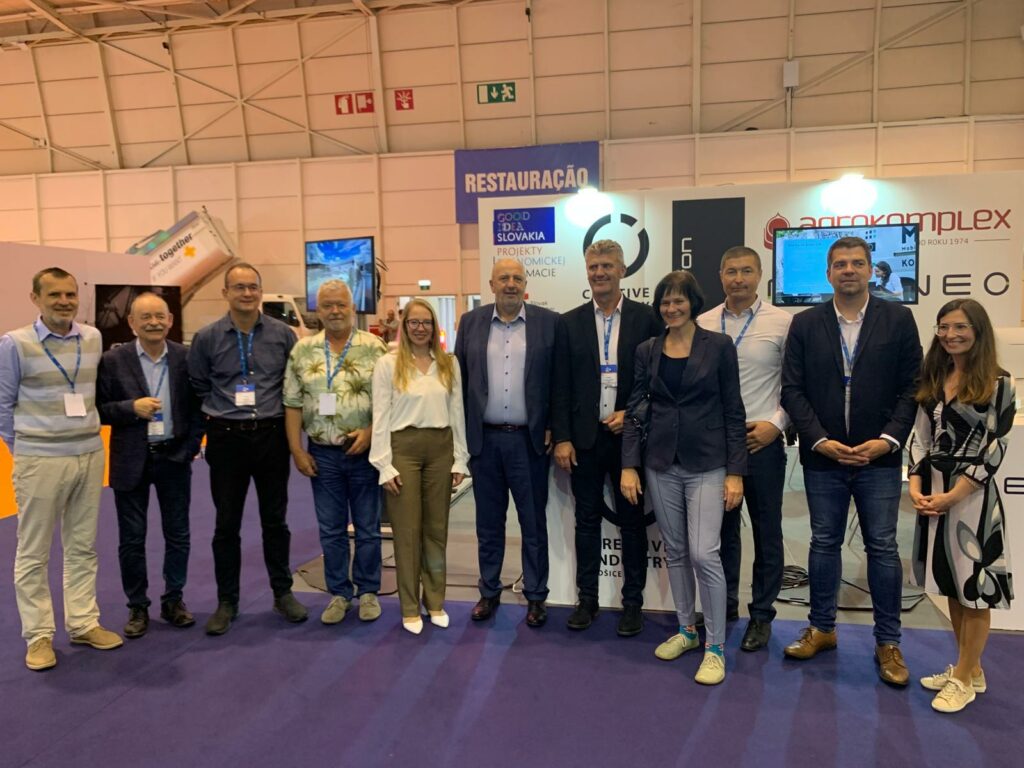NSCC and NCC for HPC at the Portugal Smart Cities Summit 2025
What will the cities of the future look like? What technologies will transform them into smart, sustainable, and inclusive environments for living and working? These were among the key topics discussed at the Portugal Smart Cities Summit, one of the largest trade fairs focused on smart technologies, held from 3 to 5 June 2025 in Lisbon. The National Supercomputing Centre and the National Competence Centre for HPC were present at the event and took the opportunity to meet with representatives of the business mission organized by the Regional Chamber of SOPK Trnava, in cooperation with the Embassy of the Slovak Republic in Lisbon. Thanks to this initiative, there was not only a chance to present Slovak innovations abroad, but also to engage in dialogue on how modern technologies, research, and high-performance computing can contribute to the transformation of cities and regions.
In addition to participating in the trade fair itself, we had the opportunity to take part in bilateral meetings and informal discussions with innovative Slovak companies that brought their technological visions to Portugal.
Slovak companies showcasing the future today
Triton Systems is a technology company focused on modern solutions for smart parking and automated ticketing that simplify the management of urban parking services. An interesting aspect of our discussion, however, was their specific interest in using HPC for training their own AI model. The company plans to deploy a customer support chatbot equipped with features such as speech-to-text recognition and natural language processing (NLP).
IoMobility is building a comprehensive urban mobility ecosystem that connects public transport, shared bikes, e-mobility, carsharing, and other services—all within a single platform with unified account management, payments, and journey planning. Thanks to the integration of a large volume of location and transport data, there is a real opportunity to leverage HPC for training advanced AI models, simulating residents’ mobility behaviour, or optimising infrastructure investments.
Nexineo presented an elegant solution for schools and businesses—virtualisation of computer classrooms and offices. Instead of traditional desktop computers, students and employees use so-called thin clients connected to a centralised server. This model significantly reduces energy consumption and maintenance needs. With HPC, there is an opportunity to scale computing power based on user needs, or even provide access to more demanding computational tools for schools focused on science, technology, or design.
Creative industries and urban data: a connection with potential for HPC
As part of the summit, we also had a highly inspiring discussion with a representative of Creative Industry Košice (CIKE) – an organisation that connects the creative sector, cultural actors, designers, and technological innovators. CIKE focuses on building international partnerships, supporting mobility, education, and the development of data-driven urban strategies based on citizen participation.
A particularly interesting aspect was the use of data in planning and evaluating urban policies, cultural activities, and community development. This is precisely where supercomputing power could bring significant added value—for example, in analysing large urban data sets or modelling the impacts of cultural events on infrastructure., alebo pri využití strojového učenia na identifikáciu vzorcov správania obyvateľov.
The aim of our participation was not only to present the possibilities of high-performance computing (HPC) to Slovak companies, but also to build bridges between industry, research, and technology. The Portugal Smart Cities Summit proved to be an ideal platform for exchanging ideas, building partnerships, and demonstrating that Slovakia, too, has much to offer on the European stage of innovation for smart cities.
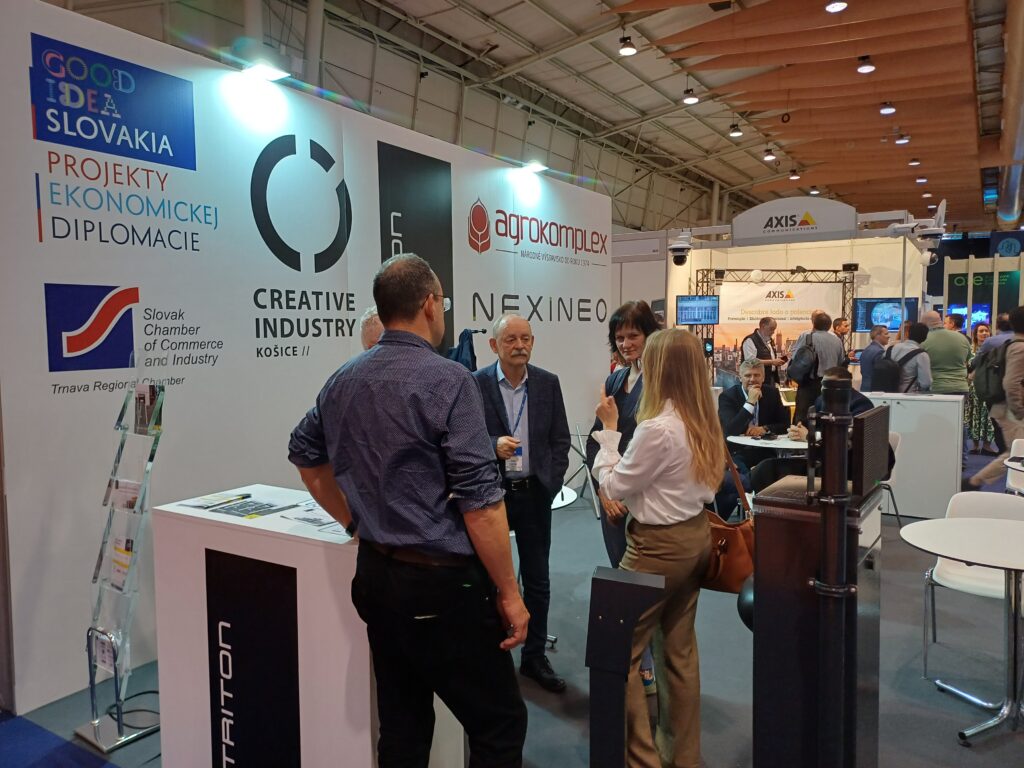
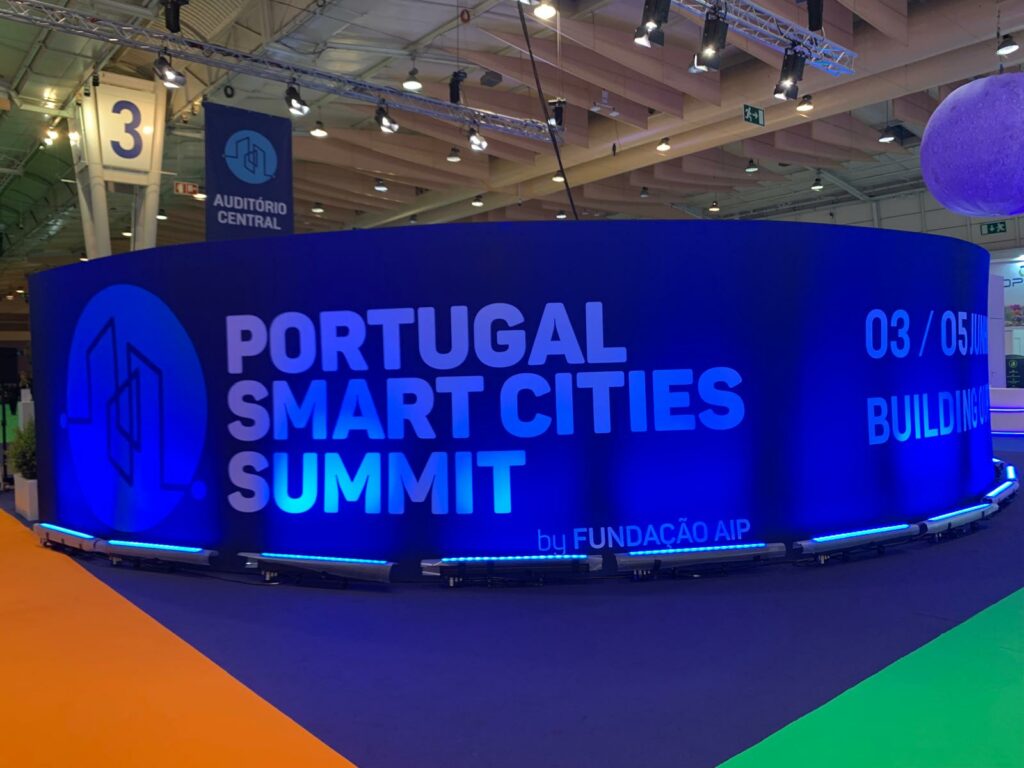
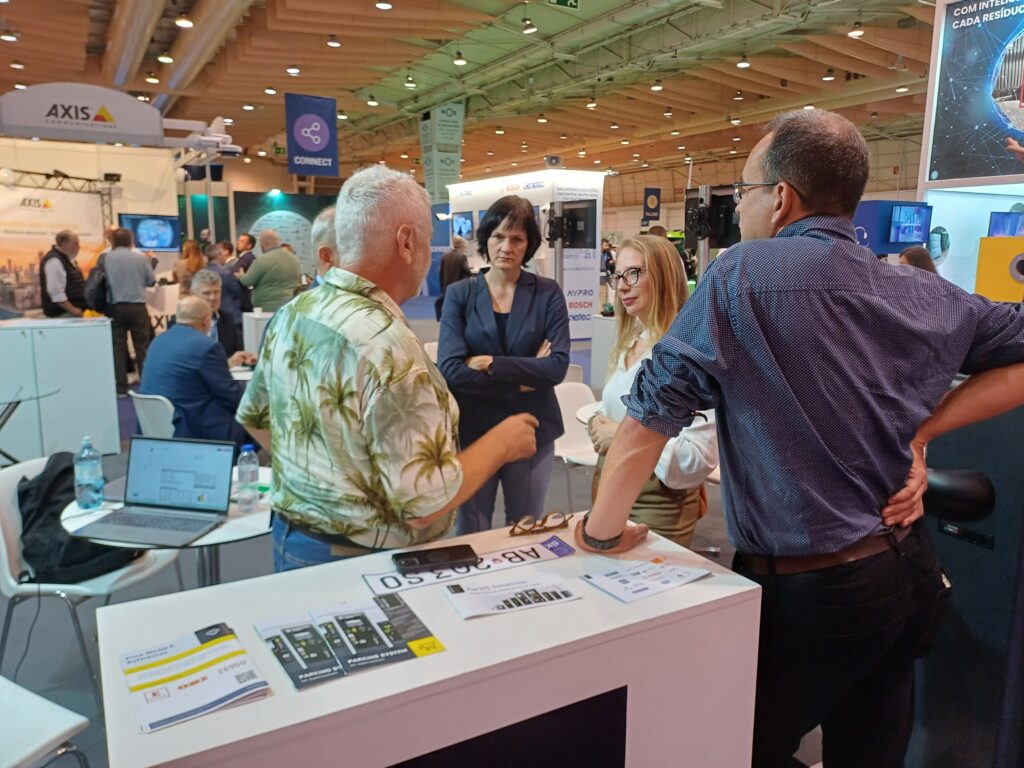
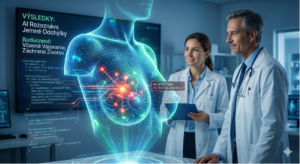 Success story: AI Helps Save Women’s Lives 17 Dec - Strach z rakoviny prsníka je tichým spoločníkom mnohých žien. Stačí jedno pozvanie na preventívne vyšetrenie, jeden telefonát od lekára či jedno čakanie na výsledky – a myseľ je plná otázok: „Som v poriadku?“ „Čo ak nie?“ „Môže sa niečo prehliadnuť?“
Aj keď skríning potvrdí negatívny nález, obavy často pretrvávajú.
Success story: AI Helps Save Women’s Lives 17 Dec - Strach z rakoviny prsníka je tichým spoločníkom mnohých žien. Stačí jedno pozvanie na preventívne vyšetrenie, jeden telefonát od lekára či jedno čakanie na výsledky – a myseľ je plná otázok: „Som v poriadku?“ „Čo ak nie?“ „Môže sa niečo prehliadnuť?“
Aj keď skríning potvrdí negatívny nález, obavy často pretrvávajú. VICE and the Digital Twin at the Pre-Christmas Hydrogen Infoday 11 Dec - Dňa 10. decembra 2025 sme sa zúčastnili podujatia Predvianočný vodíkový Infoday v Bratislave. Súčasťou programu bola prezentácia VICE – Vertical Integrated Cyclic Energy, Hydrogen, vedená Laurie Farmerom a Luciou Malíčkovou.
VICE and the Digital Twin at the Pre-Christmas Hydrogen Infoday 11 Dec - Dňa 10. decembra 2025 sme sa zúčastnili podujatia Predvianočný vodíkový Infoday v Bratislave. Súčasťou programu bola prezentácia VICE – Vertical Integrated Cyclic Energy, Hydrogen, vedená Laurie Farmerom a Luciou Malíčkovou. 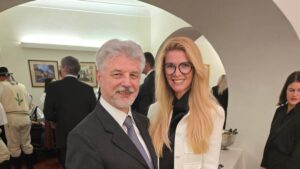 Strengthening Slovak–Romanian Cooperation and the Development of Scientific Partnership 8 Dec - Romania’s National Day is a significant historical milestone commemorating the Great Union of 1918, when Transylvania, Bessarabia, and Bukovina united with the Kingdom of Romania. This moment laid the foundations of the modern Romanian state and remains a powerful symbol of national identity and unity to this day.
Strengthening Slovak–Romanian Cooperation and the Development of Scientific Partnership 8 Dec - Romania’s National Day is a significant historical milestone commemorating the Great Union of 1918, when Transylvania, Bessarabia, and Bukovina united with the Kingdom of Romania. This moment laid the foundations of the modern Romanian state and remains a powerful symbol of national identity and unity to this day.
